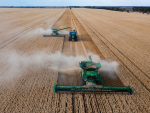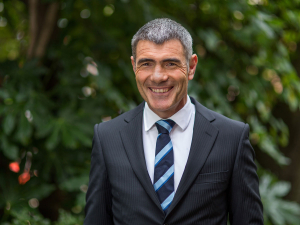Machinery manufacturer John Deere and livestock specialists DeLaval have pooled their resources to create the Milk Sustainability Center (MSC), described as a digital ecosystem to help dairy farmers improve the efficiency and sustainability of their operations.
The ecosystem will be open for further partners to join, with the objective of providing farmers with the data needed for a holistic view of their dairy operations.
Dairy farmers will be able to use the Milk Sustainability Center to monitor nutrient use efficiency (NUE) for nitrogen, phosphorous, potassium, and carbon dioxide equivalent (CO2e), across the entire farm, specific fields, or the milking herd.
The MSC will also provide data to compare performance against other dairy operations and drill down to identify key areas for improvement. The system aims to serve dairy farmers with operation specific information, independent of farm machinery brands or herd management software.
“Dairy farming is perhaps one of the most complex agricultural business’s today with no system integration between crop and animal performance. Typically, dairy farmers might use five or more different, nonconnected software solutions to run their business,” said Dave Chipak, director, dairy & livestock production systems at John Deere.
Following farmer authorisation, data from DeLaval Plus and the John Deere Operations Center will be automatically pulled into the Milk Sustainability Center. The aim is to reduce manual data input, ensuring higher data quality, and ultimately helping to create an entire overview of a farm system, including fields, cows, employees, advisors, machinery and other assets; all working in collaboration.











